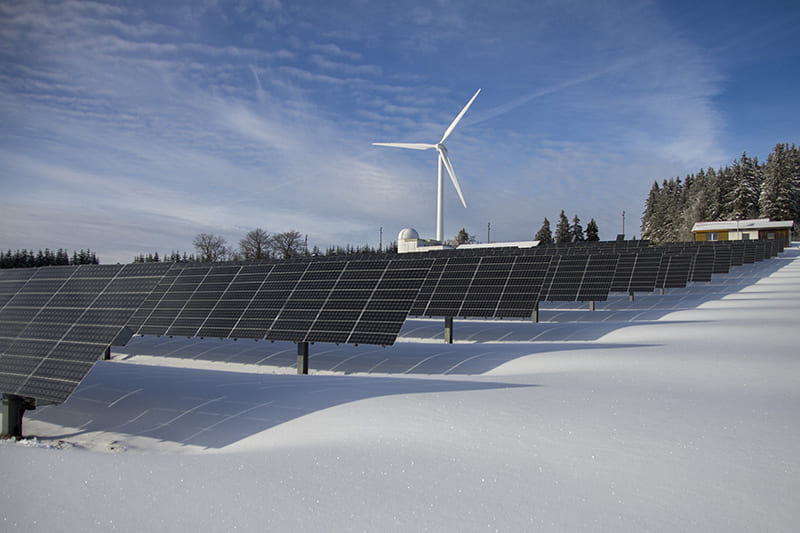Short-term vs long-term energy contracts: How to decide which is best for your business
21 December 2023
Your electricity procurement can have a substantial impact on your business’s bottom line, which means there’s a lot to consider when it’s time to sign a new contract. One crucial factor to examine is contract length. Is a short-term or long-term contract better for your situation? The answer depends on your company’s priorities, risk tolerance, and future plans. Choosing the most suitable contract now can help you save money in the long run or lock you into a less-than-ideal situation. Let’s look at short-term and long-term energy contracts to help you decide which will be most beneficial for your business.
Short vs. long
What is considered short- or long-term? Typically, any contract that lasts for less than a year is short-term. Standard short-term energy contract offerings are three-month, six-month, or individual month-to-month commitments.
Contracts that span 12 months or more are long-term contracts. Common term lengths in this category are 12, 24, or 36 months.
Advantages of a short-term energy contract
- Benefit from market trends
- Increased flexibility
When you’ve only committed to paying a specific price for a few months, you can better take advantage of market rate drops. If you sign a 12-month contract and market prices drop, you must pay a higher price than current rates until the end of that term. If you’ve only committed to three or six months, you are less likely to miss out on dips in electricity rates.
Short-term plans allow you to be more nimble. Perhaps you’ve increased your production capacity, or maybe you’ve changed the hours during which you use the bulk of your electricity. Either of those things could change which contract is best for you. Being in a short-term contract means little waiting before you can optimize your energy contract for your shifting situation. If your company’s energy needs change, you can change your energy procurement plans accordingly without waiting for the end of a long contract. You can even switch energy providers entirely, if you’re not locked in long-term.
Disadvantages of a short-term energy contract
- Suffer from market trends
- Budget uncertainty
The ability to benefit from market trends is an advantage of short-term contracts. Unfortunately, susceptibility to market trends goes both ways. Just as you can benefit by signing a new contract when prices drop, you’ll have to lock in those higher prices at your next renewal if prices rise. Short-term electricity contracts leave you more open to market fluctuations, whether up or down.
If you don’t know your electricity rates in three or six months, creating an accurate budget is impossible. If your company has tight or seasonal cash flow, that uncertainty can cause hardships when your forecasted expenses are vastly different from your actual costs.
Advantages of a long-term contract
- Stability
- Long-term savings
- Less time spent researching
Committing to a contract of a year or several years means your rates are stable. This lack of variability also provides predictability, which can be especially useful for businesses that need to project future costs accurately.
A long-term commitment can mean long-term savings. If you sign a contract when rates are low, you keep that desirable rate for the duration of your contract. If that contract is only three months, you have to hope that rates haven’t increased when those three months are over. If that contract is 24 months, you’ve bought yourself the right to pay a low rate for two years, even if it is well less than the market value a year into your contract.
You should thoroughly research available options every time you sign a new energy contract. That means exploring every electricity company that services your area and looking into each of their contact options. That’s a lot of time and energy taken away from your company’s daily operations. If you sign a long-term contract, you don’t need to weigh your options again for a year or more. A shorter contract means that as soon as you sign it, it’s almost time to start the research again.
You can mitigate this issue by working with an energy management consultant who has already done this research and can quickly walk you through your options. However, a long-term contract will always mean less time spent deciding on the best plan for your energy procurement needs.
Disadvantages of a long-term energy contract
- Inability to capitalize on market decreases
- More commitment
Locking in a low rate for a year or several years can be great for your company. But there’s no way to know what will happen with future rates. If they increase, you’ll pat yourself on the back for having the forethought to lock in low rates long-term. If rates decrease, however, you can do nothing about that until your contract ends, meaning you could lose out on savings. Because you’ve committed for a more extended period, you avoid increases but may also miss out on market decreases.
If you are unhappy with your utility company’s level of service or reliability, a long-term contract prevents you from doing much about it. As long as they meet the contract terms, you are stuck with them until the contract expires unless you pay penalty fees.
Evaluating your options
Short-term and long-term energy contracts each have their advantages and disadvantages. What’s best for your company depends on your priorities and situation. If you need help evaluating available options, working with an energy consultant can remove much of the stress, confusion, and pressure from this vital decision. They can answer your questions about various options, help you understand your needs and how a contract’s terms pair with those, and understand the pros and cons of each potential electricity contract.
Others articles you might like
7 ways sustainability benefits your business
With everything from the news to water-cooler conversations revolving around climate change and the environment, it's no surprise busines...
6 February 2024Six advantages of green energy and microgeneration for companies
Most companies rely partly or entirely on non-renewable fuels, such as coal, oil, and natural gas, to heat and cool their facilities and to ...
9 January 2024Five actionable steps for a successful transition to sustainable power
It is becoming increasingly apparent that current energy use and policies are unsustainable from a global perspective. More and more busines...
23 November 2023



